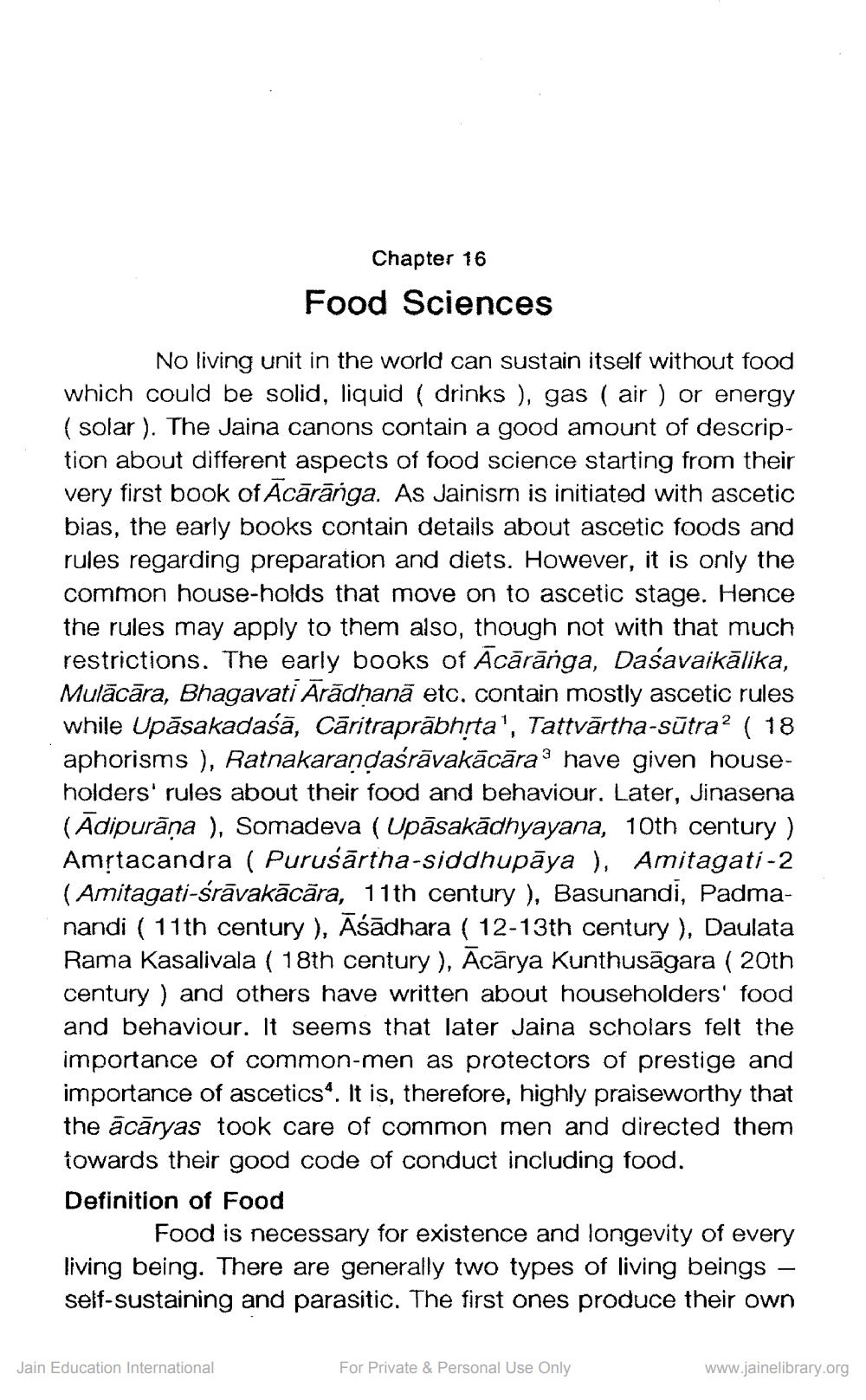________________
Chapter 16 Food Sciences
No living unit in the world can sustain itself without food which could be solid, liquid ( drinks ), gas ( air ) or energy (solar ). The Jaina canons contain a good amount of description about different aspects of food science starting from their very first book of Acārānga. As Jainism is initiated with ascetic bias, the early books contain details about ascetic foods and rules regarding preparation and diets. However, it is only the common house-holds that move on to ascetic stage. Hence the rules may apply to them also, though not with that much restrictions. The early books of Ācārānga, Daśavaikālika, Mulācāra, Bhagavati Arādhanā etc. contain mostly ascetic rules while Upāsakadašā, Caritraprābhrta', Tattvārtha-sūtra? ( 18 aphorisms ), Ratnakarandasrāvakācāras have given householders' rules about their food and behaviour. Later, Jinasena (Adipurāna ), Somadeva (Upāsakādhyayana, 10th century ) Amrtacandra ( Puruśārtha-siddhupāya ), Amitagati -2 (Amitagati-śrāvakācāra, 11th century ), Basunandi, Padmanandi ( 11th century ), Aśādhara ( 12-13th century ), Daulata Rama Kasalivala (18th century ), Acārya Kunthusāgara ( 20th century ) and others have written about householders' food and behaviour. It seems that later Jaina scholars felt the importance of common-men as protectors of prestige and importance of ascetics. It is, therefore, highly praiseworthy that the ācāryas took care of common men and directed them towards their good code of conduct including food. Definition of Food
Food is necessary for existence and longevity of every living being. There are generally two types of living beings - self-sustaining and parasitic. The first ones produce their own
Jain Education International
For Private & Personal Use Only
www.jainelibrary.org




